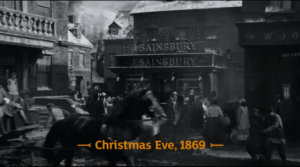Types of Stories Brands Can Tell: The Ultimate List
You buy into storytelling for marketing but don't know what stories to tell. That's okay. This guide will provide you with a list of all the different types of stories your brand can tell.
The big thing to remember with storytelling is that it's limited only by your imagination.
For brands who make storytelling part of their DNA, there is an unlimited amount of stories to tell.
Your audiences want stories. They want to form that powerful connection with your brand. Stories captivate audiences like nothing else can.
![]()
The best thing about creating story content, is that with every type of story you tell, you can tie in a compelling call-to-action in order to move audiences to take action.
Storytelling is the most powerful form of marketing, and can help brands generate awareness, drive customer acquisition, expedite sales, and increase retention and loyalty in a cluttered marketplace.
With that, let's jump into the ultimate list of types of stories your brand can tell.
We will update this list over time, so bookmark this article and continue to check back every now and again.
If you want to jump to a specific type of story, click from the list below.
- Brand Stories
- Product or Service Stories
- Customer Stories
- Seasonal Stories
- Community Stories
- Competitor Stories
- Educational Stories
- Industry Stories
- Company Stories
Tell a Brand Story
When it comes to brand storytelling, there are so many different types of brand stories you can tell. Here's a great list of brand stories to get those creative juices flowing.
- Brand story: Tell the story of your brand; Your reason for being.
- Founder's story: Showcase your founder's journey
- Origin story: Tell how your brand came to be
- Brand history story: Explain your brand evolution
- Brand values story: Share what your brand stands for
- People story: Spotlight the people behind the brand
- Mission story: Tell a story about the mission of your brand
- Vision story: Share a story about your vision of the future
- Industry story: Explain how your brand fits into, and stand atop, of its industry
- Community story: Create content around how you help the community
- Spotlight story: Spotlight a recent happening that ties into your brand's core values
- Event story: Tell stories about events you are attending, or already attended
Tell a Product or Service Story
More and more, people want to know the stories behind a product or service. It's especially important to use stories to connect a product to your audience's values or needs if you want them to pay a premium.
If you're an apparel brand, you brand means everything. It's the only reason people will pay $50 for your t-shirt instead of going to Walmart and buying a similar shirt for $3.
Product stories help brands get people to love their products and services over the competition.

- Sourcing story: Tell people where and how your materials were sourced
- Needs story: Connect your product to the needs of your target audience through storytelling
- Challenges story: Does your audience have a particular challenge that your service solves?
- Product why story: Tell the story behind why you created the product. Honda is using product storytelling to cut through the clutter.
- Inspiration story: Inspire people to buy your product by showing them the outcomes it creates
- Customer testimonial story: People love hearing the success of others using your product
- Features story: Explain one or more features, and talk about why they are so important for the customer
- Benefits story: Share a story about the experience people will have if they use your service
- Product fail story: Not everyone will be successful with your product. Show people where others have failed so that they don't make the same mistakes
- How-to story: Transform boring product instructions into motivational how-to stories
- Entertainment story: Create an entertaining story about someone using your product
- Hero's journey story: Take people on a thrill ride of overcoming a challenge and make your product the hero
Tell a Customer Story
Customer stories are one of the most effective types of stories a brand can tell. Audiences want to hear how others use your products, services, and what they think of your brand.
- Customer success story: Showcase a customer successfully using your product or service
- Customer spotlight story: Tell stories about your top customers
- Customer fail story: Don't be afraid to tell stories about customers who were unsuccessful; if it saves someone else the trouble, it'll go a long way for your brand
- First customer story: Tell the story about your very first customer and what it meant to your company
- Ideal customer story: Paint a picture of who will get the most out of your product or service
- Customer advocate story: Share a story of a loyal customer that goes out of their way to recommend your brand to others; it'll inspire more people to become brand advocates
- Hard luck story: Talk about someone who was down on their luck, but your company, brand, product, or service saved them
- Generational story: Share stories about how your products are passed down from generation to generation
- Contest story: Running a contest? Tell a story about the content, and another about the winner
Tell a Seasonal Story
Each month of every year provides brands with more story content to create. Seasonal stories are some of the best types of stories to tell because they are highly relevant, and many people can relate to them.

Here are a few ideas to get you started.
- Holiday story: Holidays provide amazing story opportunities. Check out an incredible story from Sainsbury's about the Origin of Santa Claus
- Monthly theme story: Whether its Breast Cancer Awareness Month or Black History Month, tell stories about it if it aligns with your brand and your audience
- Daily theme story: From National Donut Day to Earth Day, there are never a shortage of daily themes to tell stories about
- Seasons story: Winter, Spring, Summer, and Fall. Tell stories about your brand, product, or services that relate to the seasons.
- Seasonal event story: Tell stories about upcoming events for the season
- Weather story: Do you sell products or services that are related to, or dependent on, the weather?
- Sports story: Does your brand, product, or service tie into seasonal sports? Get people pumped about an upcoming sports season through storytelling.
Tell a Community Story
Brands who stand out in a cluttered marketplace are brands who make strong investments in their community. People want to be a part of a brand community that gives back. If your brand is deeply rooted in the community, tell stories about it.
- Charity story: Do you back a specific charity? Tell people that charity's story and explain why your company got involved.
- Community outing story: Let people into your world by sharing stories of your team working in the community
- Community spotlight story: Tell your community's story
- Person of the Year story: Nominate an employee, or community member, who gave back the most over the year
- Employee spotlight story: Spotlight an employee who best exemplifies your community values.
- Fundraiser story: Raising funds for your community? Tell fundraiser stories and solicit donations.
- Brand-Community history story: Create story content about the history between your brand and your community.
- Future community story: Tell stories about future developments going on in your community and where your brand fits in.
Tell a Competitor Story
Telling a competitor story may seem counter intuitive, but let's face it, all brands have competitors. Not only that, but you better believe your audience isn't also evaluating your competition before they make a decision about your brand, products, or services.
Get ahead of it, and start telling stories about your competitors, how they stack up, where they excel, and most importantly, where they fall down (especially against you).
- Competitor spotlight story: Let people know who else plays in the space and plant seeds of how they are different from you
- Competition story: Create content about how competition makes good companies better
- Stack up story: Explain how you stack up against the competition
- Comparison story: Compare products and features so customers can make the right purchase decision
- Competitor customer story: Interview a customer competitor to understand what they like and don't like about the competitor's products, customer service, etc.
- Industry story: Talk about your competitors in the context of the larger industry and explain where they, and you, fit in
Tell an Educational Story
Storytelling is an extremely effective strategy for learning. According to Kelly Prince in The Science of Storytelling, "Storytelling allows the learner to paint a picture in their head, which creates a reality and reinforces the meaning. Using storytelling in your classroom can “plant ideas, thoughts and emotions into the listeners’ brains.”
Educational stories are the types of stories that can bring the most value to both your customers, as well as, your employees.
Let's see how your brand can tell stories that educate audiences.
- How To story: Teach someone how to complete a task using storytelling
- Training story: Employee training can be much more effective when you inject stories into the curriculum
- Learning quiz story: Better understand uptake by injecting learning questions within the story
- Educational topic story: Teach someone about any topic by wrapping the facts in a compelling story
- Problem solver story: Find problems that your customers have, and tell stories about the best way to solve those problems
- Ask the expert story: Interview experts on topics related to your audience's needs and challenges, and then tell those stories
- Instructional story: Replace boring product instructions with immersive instructional stories to inject fun into product assembly
Tell an Industry Story
Where does your company fit into the overarching industry? Why should audiences care about you versus every other company in your industry? What are you doing differently? How are you moving your industry forward?
These are all questions that your audience wants to know the answer to.
Every industry has stories. Tell yours.


- Industry history story: Romanticize the history of your industry through storytelling
- Company-Industry story: Explain how your company fits into the overall industry, and how you stand out
- Future of industry story: Tell stories about where your industry is going
- Past problems story: Don't be afraid to tell stories about past issues your industry created, and what's happening to prevent future issues
- Bettering your industry story: Explain how your company is moving your industry forward
- Industry people story: Spotlight people who are working to advance your industry
- Industry-Community story: Share stories about the impact your industry has on communities
- Industry technology story: Tell stories about the technology advancement going on in your industry and how it will impact people's lives. Microsoft is betting big on storytelling.
Tell a Company Story
Company stories are very similar in form as brand stories, but they level up. You create content at the company level instead of at the brand level. Let's take a look.
- Company story: Tell your company's story; Why it was created
- Founder's story: Spotlight your founder's journey to starting the company
- Origin story: Tell the story of how your company was founded
- Company history story: Tell the timeline story for your company
- Company values story: Share what your company stands for
- People story: Spotlight the people behind your company
- Mission story: Tell a story about your company's mission
- Vision story: Share a story about your vision of the future
- Industry story: Explain how your company fits into, and stand atop, of its industry
- Community story: Tell stories about how your company gets involved in the community
- Spotlight story: Spotlight a recent happening that ties into your company's core values
- Event story: Tell stories about events you are attending, or already attended
Unlimited Types of Stories for Brands to Tell
As you can see, there are so many different types of stories for your brand to tell. Your storytelling is only limited by your imagination.
To find the best stories for your brand, put yourself in the shoes of your audience, whether that's your customers, employees, partners, investors, or anyone else, and think about the types of stories they'd want to hear. Then tell those stories.
Collect feedback from your audiences to find out the types of stories that are well received, valued, and shared with others. Then tell more of those types of stories going forward.
Storytelling is an art. It's a process. To get good at storytelling, it requires practice. It starts with telling one story, and then the next.
Every brand has a story. Tell yours.
Become an even better storyteller marketer. Download our storytelling best practices guide.
Book a Demo
See how to bring personalized digital experiences to life for your brand
During the call you will:
- Hear how it works
- See example digital Stories
- Walk through the analytics
- Get your questions answered
